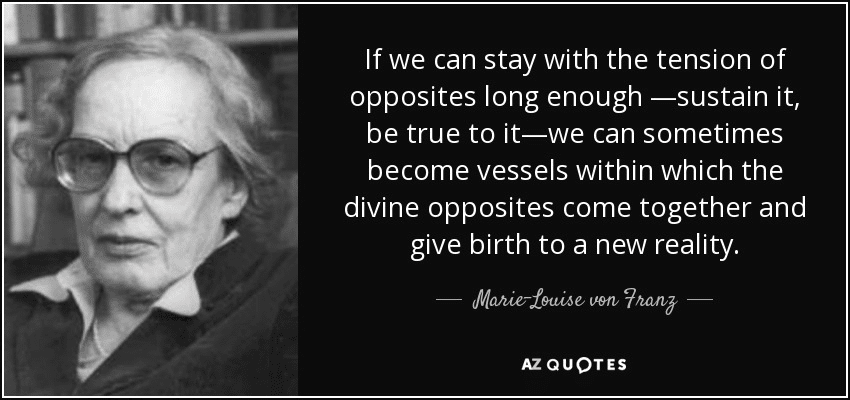
We can develop intelligent emotionality or feeling just as we can develop intelligent thinking.
Emotions range from the most ecstatic love and appreciation to the most negative and painful. They are as significant to our inner nature as water is to our outer nature. When our inner water/emotion dries up or freezes over, our spirit begins to die as our body would without water.
For example, when depression overwhelms our personality we are frozen in negative emotions. The lightness of life is not even a memory. On other occasions, raging anger can evaporate any empathy(spirit) for another or oneself.
What is Emotional Intelligence?
Emotion is synonymous with feeling, a felt-intelligence.
Emotional intelligence has come a long way and it has not come far at all. To some degree, modern culture and science have seen emotions/feelings as inferior or unnecessary, especially negative emotions.
Emotions can be perceived as getting in the way of our thinking or rationality. They mess it up, slow it down and have nothing to do with the facts.
Usually, the emotional tools we learn are some form of “get over it”, “just stop feeling that way”, basically repression. We can be smarter than that.
Furthermore, thinking and feeling working together create a dynamic duo; intelligence from two very different approaches. If we leave emotion out of the equation we miss the mark.
For example, We know how people can be very, very intelligent but treat others and themselves terribly. We may have an advanced rationality but lost in how to have an emotionally intelligent relationship.
Emotional intelligence: “Thinking, Feeling, Sensation and Intuition” 
We can also define emotional intelligence by looking at it in relation to the four basic “functions” of a human personality via Carl Jung: Thinking, Feeling, Sensation and Intuition.
We figure out how to navigate our life through these four operations.
“When we think, it is in order to judge or to reach a conclusion, and when we feel it is in order to attach a proper value to something. Sensation and intuition, on the other hand, are perceptive functions— they make us aware of what is happening, but do not interpret or evaluate it.” C.G. Jung, Collected Works
For example, “I sense(sensation) how overworked my boss is this week. I am uptight(sensation) just being around him. I intuitively(intuition) get the sense he is having problems at home. I think(thinking) I will give him some space today and I still value(feeling) him as a good leader and boss. He’s just having a hard time right now.”
I could have treated my boss in a very different way if I had not used this “feeling function” of valuing him and his situation at home. By valuing or “feeling the relationship” I can make better decisions about how to interact with someone. Especially, when I use a little thinking.
Emotional intelligence with a partner or child 
Our emotional intelligence or lack of it, is in our face with those closest to us; our partners, our children and our parents. We are challenged to get smarter in these relationships, emotionally smarter.
In these relationships we can experience the most profound love and appreciation to the most crazy and hurtful feelings. The fullest range of emotions are found here. This is where a little emotional intelligence goes a long way and everyone feels better in the long run.
However, what makes me happy and what makes my partner happy or my child happy is often not the same. This is where emotional intelligence comes in.
If I argue with my partner to get my way, so I win and you loose, that’s not as smart as being clear about what I need and finding out what my partner needs and discussing how we may be able to do both or some third way. We are valuing each other’s need to have some happiness, some satisfaction.
This valuing is more than negotiation, even though that is part of the conversation. It is emotional. All the communication techniques in the world will not work unless we meet others through our feelings; such as mutual respect.
For example, we have all been talked to by someone that says the “right words” but the feeling is not there.
Gradually as we practice and gain experience we become more emotionally intelligent. We use our feeling in balance with thinking.
Example conversation: 
Partner 1: “I would like to talk about a delicate topic with you to see if we can take it another step. When would be a good time for you?”
Partner 2: “What is it about. I get a little anxious when you say, delicate topic.”
P1: “I’d like to talk about money and see if we can stay as relaxed as possible. I don’t want to fight. I want to see if we can talk about us; us and money.”
P2: “I’m too tired now. I don’t want that to get in the way. So, I will lay down for awhile and then we’ll talk after that, ok?”
P1: “Of course.”
P2: “I can understand why there has been so much anger over money. As I was lying there I remembered how you tend to want to save money and I tend toward spending.”
P1: “Yes, I get afraid when we start using credit cards more. I just feel safer with some money in the bank.”
P2: “What amount of money would feel safe to you?”
P1: “I don’t know. There is never enough in the bank and I always worry. If I worry I get angry with you for spending anything.”
P2: “I worry too.”
P1: “About what?”
P2: “I spend because I do not want to end up like my parents.” “They worried about money constantly. I couldn’t buy a candy bar and they reminded me that I should be saving that money for college.”
P1: “We both have fear about money for different reasons.” “We have been dumping worry and anger on each other for years.”
P2: “Yes, and those different reasons rub salt in each other’s blind spot.”
P1: “Yes, the anxiety I have about you spending is tied to moving our home every few years as a kid. Isn’t that weird. We had to move every year or two for my father’s work.”
P2: “You really need something stable and consistent.”
P1: “Yes”
P2: “We are working with something deeper and more emotional than money.”
P1: “Yes, that is why we go round and round almost every time we talk about money. I feel better right now, with you and me.”
We could go on with this dialogue. The emotional intelligence is in the awareness and courage these two have. They could feel what they were feeling and connect the dots using their thinking. They valued feeling, as they valued thinking.
Previously, they were blaming each other for anxiety in the relationship as well as the anxiety in themselves. They connected the dots by associating a problem in the present to the past. They can now feel and think about those emotions. And, they can face these emotions without getting lost in them.
Anxiety around money was unconscious for many years. That’s how these things go. This issue takes us deeper into emotional intelligence. As individuals they had enough stability to hold the tension. And through holding the tension a new stability, trust and happiness could arise. Now they have each other as partners to grow. 
Links:
Meditation for emotional intel
The Art of Suffering Emotional Pain
Books:
Emotional Intelligence, Daniel Goleman
Psychological Types, C.G. Jung
Tests:
